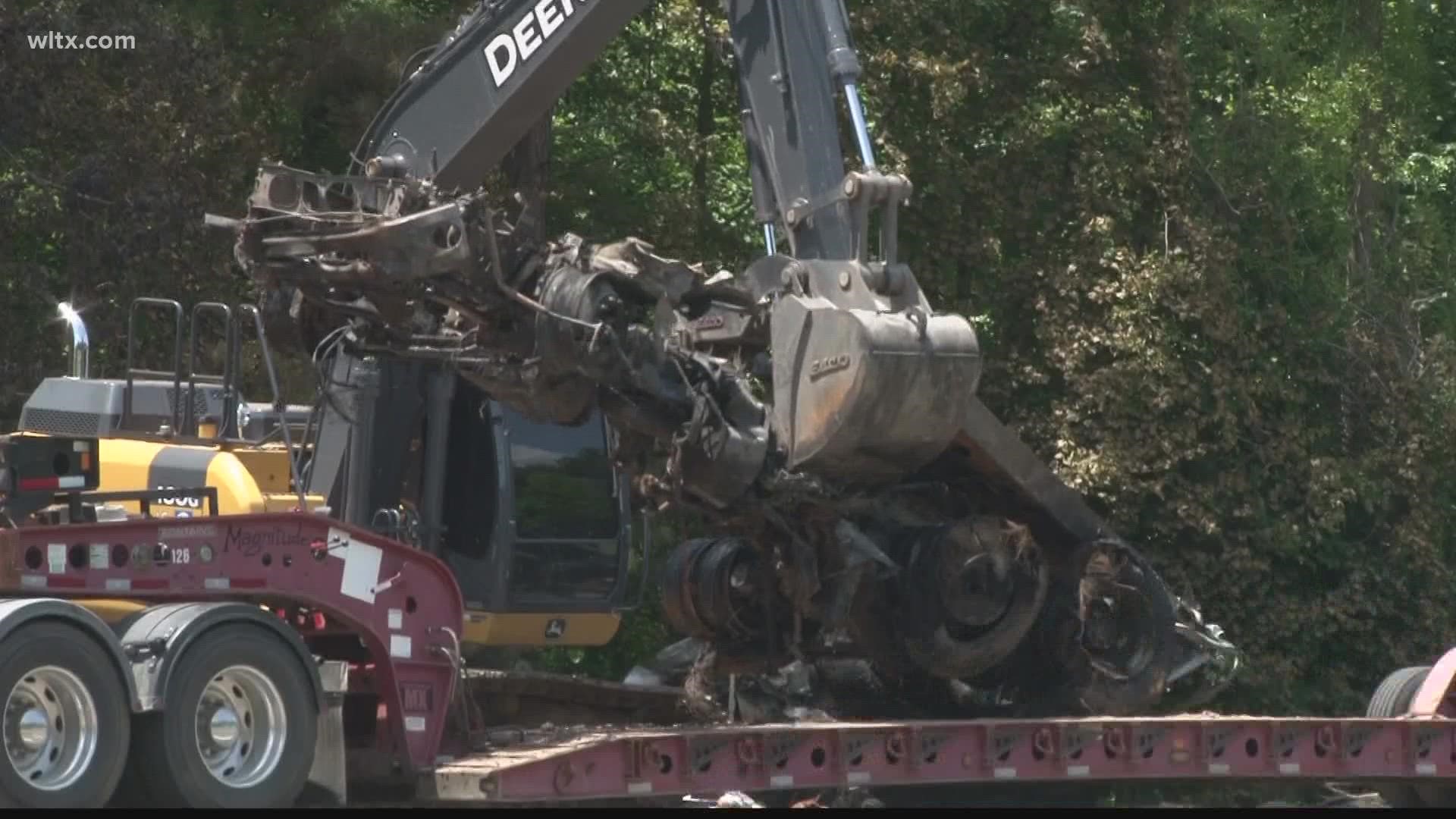FAIRFIELD COUNTY, S.C. — Food, water and plant life are all essential components of our environment. All of these have potential to be harmed by copious amounts of ammonium sulfate.
A truck carrying 20,000 pounds of it spilled on a state highway this morning, which certainly left a mark.
One of those marks was left on several trees that were burned next to I-77.
Local landscaper and plant expert Zac McClendon, who owns Bare Roots Gardening, tells News 19 his biggest concern is for the soil.
"It's going to reduce that plant's ability to absorb water because of the high salt concentration around its roots, but I think that over the next year or so it's going to reduce the PH of the soil in a larger radius from the spill that affects all the plants where you'll see reduced uptake of certain nutrients," said McClendon said.
As far as the long term effects, Zac explains these trees probably won't rebound. They'll likely die.
When it comes to the water source underneath this chemical spill, the water director for this area tells us it's not of concern because the solid ammonium sulfate didn't seep in deep enough to break through the pipes.
"Not only is it around 20 foot deep, it is in a steel casing pipe, and then the water line itself is in a ductal iron pipe, so it's almost zero chance that there could be any type of contamination in the water system," said Winnsboro Water Director Trip Peak.
And if there was a chance, DHEC would alert them to cut the water line in sections, make repairs, disinfect, flush and then bring it back in service.
RELATED: Gas main break near I-20 leads to evacuations in Lexington County, 6 miles of interstate shut down
Then comes our food source, livestock that local farmers raise. Doko Farm co-owner Amanda Jones in Blythewood tells News 19 if her rare heritage breed animals could be impacted by a chemical spill, which they were not in this case, she would take steps to keep them safe.
"Because we are pasture-based 365 days a year, what we could do is move any livestock in an affected area to the far side of our local farm and possibly move the most vulnerable such as young poultry or turkeys into a farm building and have fans on them to help clear the air," Jones said.

